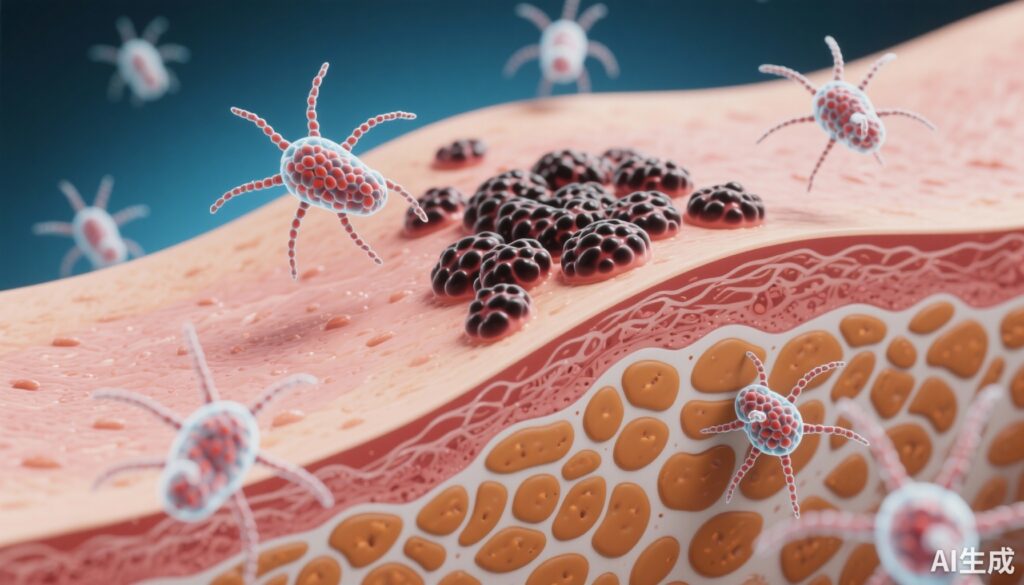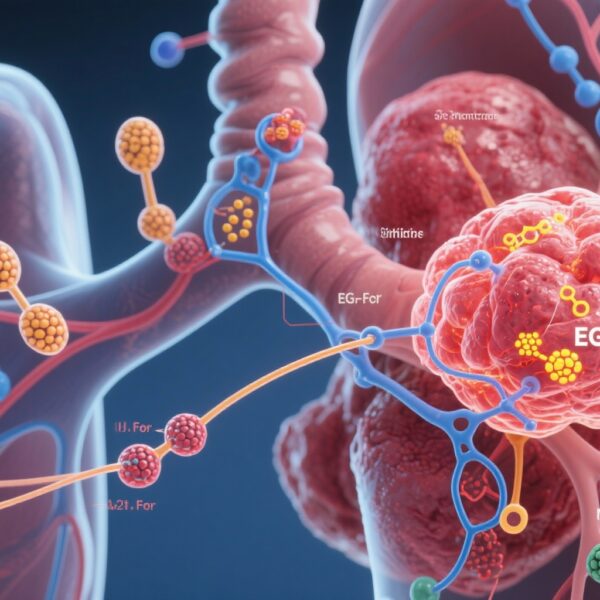Highlight
The CheckMate 238 trial’s final 9-year analysis demonstrates that nivolumab significantly prolongs recurrence-free survival compared to ipilimumab in patients with resected stage III or IV melanoma. Nivolumab also shows a trend toward better distant metastasis-free survival and a slightly lower melanoma-related mortality without new late adverse events. These data affirm the long-term efficacy and safety of nivolumab as adjuvant therapy.
Study Background
Melanoma is a highly aggressive skin cancer with a substantial risk of recurrence and metastasis after surgical resection, especially in advanced stages III and IV. Despite complete resection, many patients experience relapse, contributing to mortality. Immune checkpoint inhibitors have transformed melanoma treatment, with nivolumab—an anti-PD-1 antibody—showing superior recurrence-free survival over ipilimumab, an anti-CTLA-4 antibody, in the CheckMate 238 trial initially reported at earlier time points. However, long-term survival data were needed to assess the durability of benefit and late safety outcomes, informing treatment guidelines and patient management.
Study Design
CheckMate 238 was a randomized, phase 3 clinical trial enrolling patients with resected stage IIIB-C or stage IV melanoma. Participants were randomized 1:1 to receive nivolumab (3 mg/kg IV every 2 weeks) or ipilimumab (10 mg/kg IV every 3 weeks for 4 doses, then every 12 weeks), administered for up to 1 year or until disease recurrence or unacceptable toxicity. Randomization was stratified by disease stage and tumor programmed cell death ligand 1 (PD-L1) expression status. The primary endpoint was recurrence-free survival (RFS). Secondary endpoints included overall survival (OS), distant metastasis-free survival (DMFS), and safety assessments. Follow-up extended to a median of 107 months (nearly 9 years).
Key Findings
At nearly 9 years of follow-up, nivolumab demonstrated a median RFS of 61.1 months compared to 24.2 months with ipilimumab (hazard ratio [HR] 0.76; 95% confidence interval [CI], 0.63 to 0.90), translating into 9-year RFS rates of 44% versus 37%, respectively. For patients with stage III melanoma, median DMFS exceeded 9 years for nivolumab and was 83.8 months for ipilimumab (HR for distant metastasis or death, 0.81; 95% CI, 0.65 to 1.00). The 9-year DMFS rates were 54% for nivolumab and 48% for ipilimumab.
Overall survival medians were not reached (>9 years) in both groups, with 9-year OS rates of 69% for nivolumab and 65% for ipilimumab (HR for death, 0.88; 95.03% CI, 0.69 to 1.11). Melanoma-attributed deaths were slightly lower with nivolumab (26%) compared to ipilimumab (30%) at 9 years (HR 0.87; 95% CI, 0.67 to 1.13). Furthermore, fewer patients in the nivolumab group required subsequent systemic therapy (37.3%) than those receiving ipilimumab (44.6%).
Safety profiles remained consistent with previous reports; no new late-onset adverse events emerged. This suggests sustained tolerability of nivolumab as adjuvant treatment.
Expert Commentary
The extended follow-up strengthens nivolumab’s position as the preferred adjuvant immunotherapy for high-risk resected melanoma, supporting current clinical guidelines. The persistent RFS improvement and favorable trend in DMFS illustrate the durable anti-tumor immune response elicited by PD-1 blockade. The lack of a significant overall survival difference may reflect subsequent therapies post-recurrence, highlighting the complexity of long-term melanoma management.
Limitations include the evolving melanoma therapeutic landscape and the absence of biomarker-guided stratification beyond PD-L1 status. Nevertheless, the long-term data provide critical confirmation of nivolumab’s benefit and manageable safety profile.
Conclusion
The 9-year final results from the CheckMate 238 trial confirm that nivolumab significantly improves recurrence-free survival with sustained safety in patients with resected stage III or IV melanoma compared to ipilimumab. These findings endorse nivolumab as an effective long-term adjuvant therapy, reducing relapse risk and delaying distant metastases. Ongoing research should explore predictive biomarkers and combination strategies to further improve outcomes.
Funding and Clinical Trial Registration
This trial was funded by Bristol Myers Squibb and Ono Pharmaceutical. The study is registered at ClinicalTrials.gov (NCT02388906) and Eudra-CT (2014-002351-26).
References
Ascierto PA, Del Vecchio M, Merelli B, Gogas H, Arance AM, Dalle S, Cowey CL, Schenker M, Gaudy-Marqueste C, Pigozzo J, Márquez-Rodas I, Butler MO, Di Giacomo AM, Gligich O, De La Cruz-Merino L, Arenberger P, Atkinson V, Nathan P, Hill A, Millward M, Fecher LA, Khushalani NI, Queirolo P, Soomro R, Rathod D, Askelson M, Pe Benito M, Joseph D, Larkin J. Nivolumab for Resected Stage III or IV Melanoma at 9 Years. N Engl J Med. 2025 Oct 18. doi: 10.1056/NEJMoa2504966. Epub ahead of print. PMID: 41124198.



